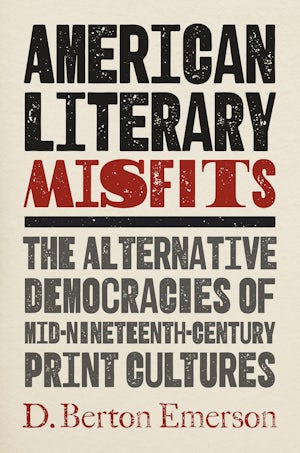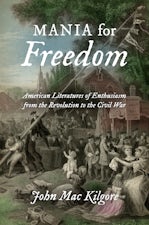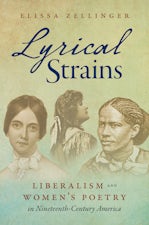American Literary Misfits
The Alternative Democracies of Mid-Nineteenth-Century Print Cultures
By D. Berton Emerson
250 pp., 6.125 x 9.25, notes
-
Paperback ISBN: 978-1-4696-7840-5
Published: April 2024 -
Hardcover ISBN: 978-1-4696-7839-9
Published: April 2024 -
E-book EPUB ISBN: 978-1-4696-7841-2
Published: March 2024
Buy this Book
- Paperback $39.95
- Hardcover $99.00
- E-Book $29.99
For Professors:
Free E-Exam Copies
Emerson’s unique contribution is revealing these texts and the people they represent as rich with political knowledge. This knowledge, he argues, finds its most potent expression in the local. Such texts show us a different kind of democratic politics: one that is egalitarian, disorderly, and radical rather than homogeneous.
About the Author
D. Berton Emerson is associate professor of English at Whitworth University.
For more information about D. Berton Emerson, visit
the
Author
Page.
Reviews
"Emerson offers fascinating, unexpected readings of popular fictions usually classed as regional, sloppy, or weird—as 'misfits'—within US literary history. A lively, original work.”—Hester Blum, Penn State University
"Raising timely questions about the sustainability of American democracy, Emerson provides an account of an unruly, chaotic, and local form of political being in the nineteenth-century United States. This will be an important work for all those interested in how the American political experiment shaped its emergent aesthetics."—Edward Sugden, King’s College London



